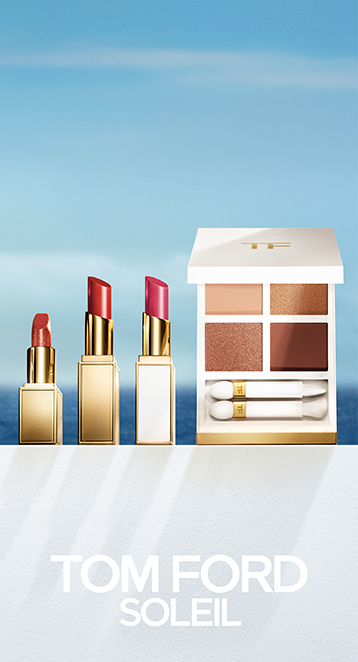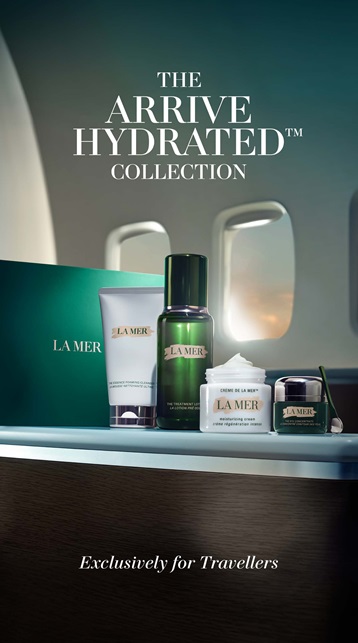CHINA. L’Oréal Group brand The Body Shop has temporarily withdrawn its products from airport duty free shops in Beijing and Shanghai following concerns raised by an Australian organisation over animal testing regulations in China.
The brand, which places ethical business and a stance against animal testing as core values, is removing its products while it clarifies claims made by Australian consumer group Choice.
The Body Shop has previously stated that it would not sell its products in the Chinese domestic market while the country maintains its stance on mandatory animal testing.
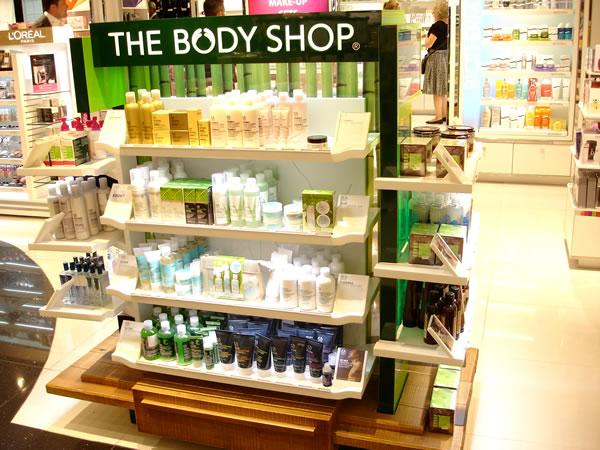 |
The Body Shop, pictured here at Nice Côte d’Azur Airport, has made a stance against animal testing one of its core values |
But Choice alleges that while products sold in the duty free channel do not face mandatory testing, they may be subject to “˜post-market testing’ – pulling items from shelves for testing on animals.
In a short statement The Body Shop said: “Given the questions that have arisen, we have temporarily removed the products until we can clarify the situation.
“In all cases, The Body Shop will not sell products if it would compromise one of its core beliefs which is our opposition to animal testing.”
The Moodie Report has contacted L’Oréal Group Travel Retail for comment [See our comment below].
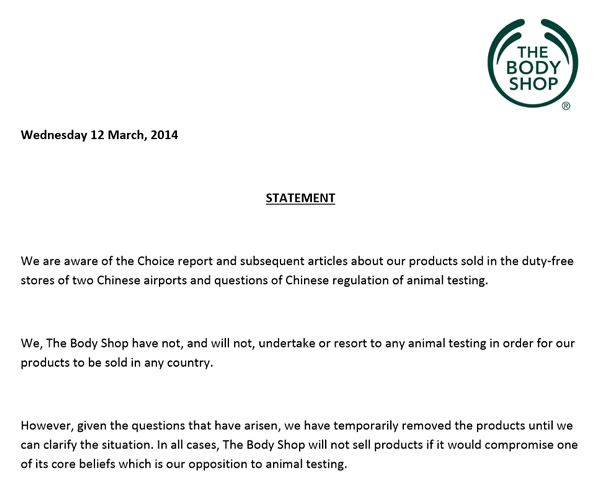 |
The Body Shop’s brief statement on its temporary withdrawal |
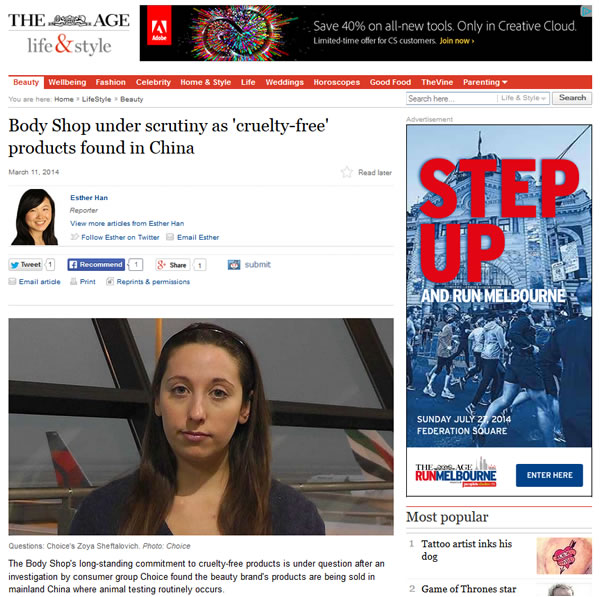 |
A question of Choice or not? How The Age reported one of the sillier stories of recent times |
THE MOODIE REPORT COMMENT – NONSENSE IN THE NAME OF CHOICE Given the brief media frenzy in Australia, The Body Shop probably had little option but to withdraw its products (hopefully temporarily) from the Chinese airport shops but the whole affair borders on the farcical and suggests Choice has its priorities hopelessly wrong, writes Martin Moodie.
The story first broke on the website of Australian newspaper The Age a few days ago and began with the following lead: “The Body Shop’s long-standing commitment to cruelty-free products is under question after an investigation by consumer group Choice found the beauty brand’s products are being sold in mainland China where animal testing routinely occurs.
“The consumer advocacy group said there was a ‘definite risk’ that the products – on sale at Beijing and Shanghai international airports with labelling in Mandarin – had been tested on animals by Chinese authorities.” It fails to say how it assessed this “definite risk”.
The article makes a number of other banal points: 1) Choice says some ‘travel exclusive’ products found on the shelves of duty free shops at the airports were being marketed to mainland Chinese customers. Comment: That must have taken extensive research… does an organisation called Choice really think that in some way such products should or would not be available at airports to citizens of that country?
2) The labels are different to ones being sold in Hong Kong [which uses Cantonese Chinese] where they’ve had a presence for years,” said Choice’s Zoya Sheftalovich. Comment: Perhaps that’s because Hong Kong and Mainland China use Cantonese and Mandarin respectively?…
3) “We had a translator confirm the products I bought had distinctive Mandarin Chinese writing. There are subtle differences [between the two when it comes to the written form].” Comment: Brilliant deduction my dear Watson! So how much did you pay the translator again? To find out that there are differences between Mandarin and Cantonese, right?
Perhaps Choice should instead be applauding (as we do) the long-standing commitment by The Body Shop (maintained under L’Oréal Group ownership) to avoiding testing products on animals rather than pursuing wholly unproven allegations that items sold in Chinese duty free shops are later being tested on animals. Besides the lack of evidence and the sweeping generalisation of Chinese practice, the argument itself is nonsensical.
Let’s say there are some Australian farmers out there who use The Body Shop Vitamin E Moisture Cream or Rainforest Moisture Shampoo to rub into the skin of sheep distressed by heat and drought. Perhaps some do – Australia can be a strange place. In which case an end user, one supposes, has ‘tested’ the product on animals. The Body Shop surely didn’t. But presumably Choice would then argue The Body Shop should withdraw its products from the Australian domestic (and farming) market.
More seriously, the consumer group would appear to be mounting an argument that no cosmetics or other beauty products, animal-tested or not, can ever be sold on the Chinese market because of how they may be used after they enter the market. Choice would be better advised to champion those companies that heed its views on animal testing, instead of so quickly condemning them in the interests of a quick blast of self-publicity.



